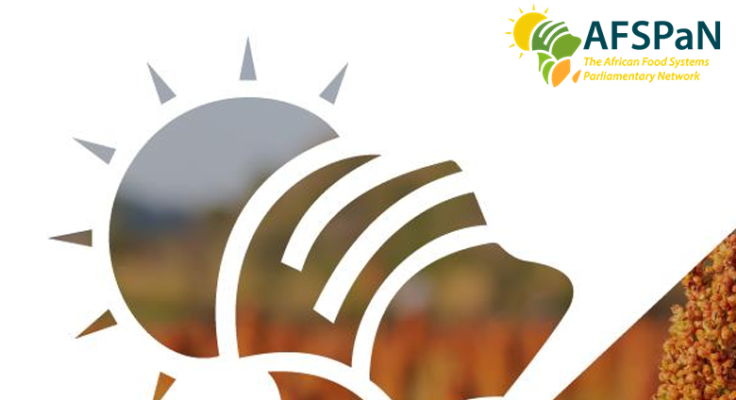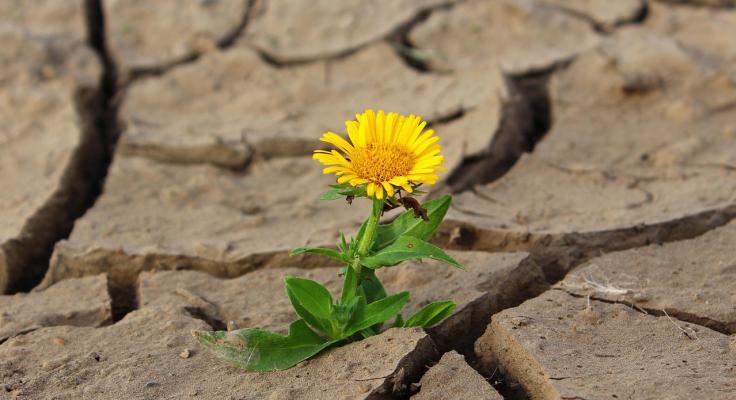Tackling food insecurity and climate challenges: A closer look at Malawi
Malawi faces significant challenges caused by climate change, economic pressures and the longstanding burden of malnutrition. In response, the government has embarked on an ambitious journey to transform its food systems by 2030 and address these challenges. We had the opportunity to discuss these efforts with Readwell Musopole, Deputy Director of Planning at the Ministry of Agriculture; Doshanie Kadokera, Economist from the Ministry of Agriculture; and Kondwani Mpeniuwawa, Deputy Director at the Department of Nutrition in the Ministry of Health, who each provided insights into the progress and strategies being implemented.
Weathering the storm: navigating from drought to disaster
In March 2024 President Lazarus Chakwera declared a State of Disaster across 23 districts due to the severe impact of El Niño. This declaration came in response to escalating food insecurity affecting millions, with projections indicating that the situation will deteriorate further during the lean season from October 2024 to March 2025. In response to the crisis, the government has intensified its social protection programs, targeting the most vulnerable populations, including the poorest and households headed by women.
Doshanie Kadokera explains that "many are enrolled in cash transfer initiatives that provide immediate relief during disasters" and notes that “post-disaster, impact assessments are crucial for adapting support mechanisms, either by increasing aid for current recipients or by extending assistance to those not previously covered”. He concedes that "resilience among vulnerable groups remains low when coping with climate shocks".
In tackling climate-related disasters, Malawi has adopted a proactive strategy to enhance climate resilience. This includes the implementation of climate-smart agricultural practices and the deployment of technologies aimed at mitigating climate impacts. Examples include an early warning system that delivers timely climate information to help farmers prepare for adverse weather conditions and effectively mitigate against risks.
Kadokera elaborates on the ongoing initiatives to promote sustainable farming and climate-smart agriculture. "We are introducing technologies that help farmers adapt to and minimize the impact of climatic shocks, such as providing seed varieties better suited to withstand climatic changes", he explains. He underscores the importance of preventive measures, noting plans to expand early warning systems for broader coverage, which will improve forecasting of “droughts, dry spells and pest infestations, enhancing Malawi's preparedness and response to climate variability”.
Closing the “maize is food and food is maize” narrative
Malawi's current nutrition landscape is characterized by high rates of malnutrition with high levels of stunting of wasting of children under five. This is compounded by diets that are heavily reliant on maize, with insufficient intake of diverse, nutrient-rich foods. These dietary limitations are not only a result of personal choice but are heavily influenced by economic realities that limit access and subsidies that favor maize monoculture over crop diversification.
In response to these issues, the country is implementing strategic interventions such as providing subsidies for nutrient-rich crops to make them more affordable compared to traditional staples like maize. It is also expanding extension services to improve small-scale farmers’ knowledge of sustainable farming practices that can increase farmers’ resilience to climate change and improve their livelihoods while producing more diverse and healthy crops.
Moreover, there is a critical push for the adoption of nutrition-sensitive policies that connect agricultural productivity with nutritional health. These initiatives include the creation of food-based dietary guidelines that align with local food availability and cultural habits, enhancing the micronutrient content of commonly consumed foods through biofortification and fortification, and integrating nutritional considerations into all agricultural and food security policies. Such strategies are vital for constructing a resilient food system that not only tackles immediate food security concerns but also promotes long-term health and well-being.
According to Kadokera, “the government's focus is not only to ensure food sufficiency but also to ensure that nutrient-dense crops are cultivated. Malawi is exploring how to best support nutrition-sensitive agricultural systems and the introduction of diverse and nutritious foods into the everyday lives of its population.” Initiatives, like school feeding programs and community-based nutritional education, play a crucial role in helping communities recognise the value of introducing nutritious food into their diets.
Malawi’s National Pathway to Food System Transformation
In 2021, Malawi adopted its national pathway for food systems transformation, aligned with the global 2030 Agenda for Sustainable Development. This comprehensive document, the product of widespread stakeholders' consultations, sets forth clear priorities: enhancing the production of nutritious food, minimising food waste, strengthening agrifood value chains, and bolstering resilience against climatic adversities among others. These priorities are underpinned by the analytical insights and costed recommendations from the CERES2030 Dives into the Nexus of Food Systems, Climate Change, and Diets for Malawi.
The financial requirements for transforming Malawi’s food systems are substantial. According to the CERES2030 report, achieving sustainable food systems transformation in Malawi will necessitate an annual increase in investment by approximately USD 543 million. This funding would target a portfolio of interventions that will be effective at achieving multiple sustainable development outcomes. This highlights an urgent need for sustained long-term development financing to bridge the significant gaps.
Donor preferences often hinder the government's capacity to execute cross-sectoral initiatives effectively. “Donors often focus their funding on specific sectors with sector-specific objectives, making it difficult to fund initiatives that address multiple areas”, Kadokera notes, highlighting a crucial issue in donor funding. Working across sectors is also challenging for government, requiring coordination and a systemic approach that incorporates agriculture, nutrition and climate resilience. “These sectors have traditionally operated in isolation, focusing on their own mandates and with limited collaboration”, said Kadokera. He continued, “Nevertheless, we are moving in the right direction to ensure holistic strategies for food system transformation.”



